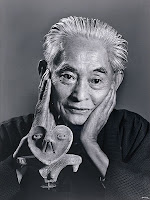This is a guest review by my husband Bill. Welcome Bill!
Thanks to Teddy for requesting this book for me to review. It was one I highly coveted.
After Confessions of an Economic Hit Man and The Secret History of the American Empire, Hoodwinked is the latest in John Perkins trilogy explaining how predatory capitalism has formed an unholy alliance with the imperialism of the American empire to threaten the economic, social and environmental fabric of the world. While it can stand on its own for those who have not read the previous two books, they provide more background detail, and are worthwhile additions to a reading list.
Perkins explains how he was recruited after graduating college as an economic hit man (EHM). Working for the Boston-based MAIN consulting firm, his job entailed selling governments in Third World countries on development schemes with forecasts of benefits that he knew to be wildly exaggerated. The intention of this deception was to saddle these countries with debts they could not possibly pay, when those projects inevitably failed to meet expectations for economic return. In such a weakened position, no nation could refuse the demands of Washington and its partners- the World Bank and IMF.
These demands would often include acceptance of US military bases, “structural adjustments” that meant slashed government spending on social programs and privatization of services, opening up of trade and foreign investment, as well as automatic support for US foreign policy initiatives. While it is a brilliantly simple means of non-military imperialism, Perkins is quick to point out that if these methods fail, the US is quite prepared to use other means such as assassination, coups, and military invasion to get its way. He warns that while previously these techniques had been applied on lesser developed countries, advanced economies are vulnerable to predatory capitalism as well, witness the crisis on Wall Street and the bankruptcy of Iceland.
The author has written these books out of remorse for his actions as an EHM. He explains how he was seduced at a relatively young age by money and sex (courtesy of his corporate trainer, a women with obvious links to US intelligence), needs that had been unmet in his earlier years. This work took a toll on his conscience, and he eventually left to set up his own consulting firm, as well as various non-profit organizations. Even then, he could not escape the grip of his former masters, as he kept winning projects that were heavy on cash, with little required in terms of work on his part. Perkins felt clearly this was to buy his silence concerning his past activities.
After the events September 11th (which he considers to be blowback for the imperialistic tactics of his government) , John felt he could no longer maintain his silence about EHMs and associated strategies to dominate the world. He has published the three books mentioned on the subject, as well as others on spirituality and the environment, and has undertaking speaking tours to publicize and apologize for his past work, sometimes in countries where the work was performed.
The author is not particularly radical in his viewpoint. He advocates for a responsible, benevolent, sustainable form of capitalism where corporations still have a place. Hoodwinked is a good read in itself, explaining in an easily understandable way the forces that shape international relations and economics. While some of the details seem somewhat contrived in a melodramatic way, there is no doubt about the validity of the overall narrative. Perkins also expresses great faith in the actions of ordinary people, acting as concerned consumers, citizens, and voters can each work in their own way to fight these malevolent forces and work towards a better world. The entire series is highly recommended.
4/5
Copyright 2007-2010: All the posts within this blog were originally posted by Teddy Rose and should not be reproduced without express written permission.





